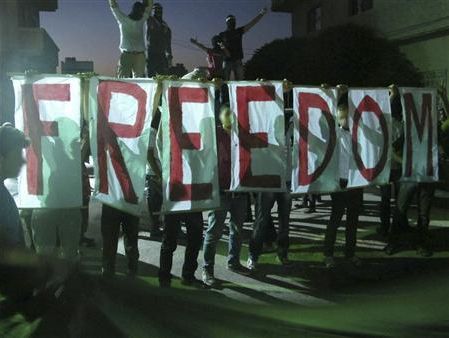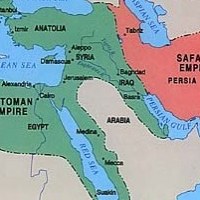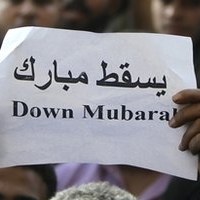![]()
RubinReports | By Barry Rubin
This is a revised and updated version of an interview Barry Rubin gave recently.

Demonstrators take part in a protest against Syria’s President Bashar al-Assad at Kfr Suseh area in Damascus on July 2, 2012. (REUTERS/Shaam News Network/Handout)
Journalist: Do you have anything remotely hopeful to say about the trajectory of the Arab Spring today?
Barry Rubin: Laugh. Aha! Fishing for optimism. Okay. First, the anti-Islamist opposition in Egypt and Tunisia has coalesced. There’s hope for autonomy for a moderate Kurdish area in Syria. And more people in the West have woken up to the situation and the danger. That’s about it for optimism about the region. I am far more optimistic about Israel’s strategic situation but that’s another issue.
Seriously, though, in Egypt and Tunisia there is a battle and the Islamists face serious opposition. The issue is not to get bound up in the details of the demonstrations but to ask what actual impact this will have. The Islamist timetable for fundamentally transforming their countries is going to be slower though there’s no reason to believe the effort will stop, much less be reversed. Nor will the West rally to the opposition’s support. The moderate democratic forces are very much alone, just as they are in Iran and to a very real extent in Syria, too.
As for Syria, 2013 is probably going to be the year of a rebel victory, even though they might not control the entire country until 2014. So what kind of government is going to rule Syria? It’s an open question but the Muslim Brotherhood is the best bet.
And the Obama Administration, which is still in office, has not changed any of its basic positions on these issues.
Journalist: Should the U.S. have some bottom lines to try to influence the upcoming constitutional referendum in Egypt?
Barry Rubin: Shrug. The Constitution will pass. The U.S. government won’t say a word of criticism or do anything. Thus, the United States has no influence on the referendum. What will happen as the Brotherhood will continue to intimidate the courts and the Egyptian president rules by decree? Will the White House seriously condition aid on the treatment of women and Christians? Obama is doing the absolute minimum to criticize the new regime which is, let’s face it, now a U.S. client.
Journalist: Is there anything we or anyone else the United States can do to help influence things in Egypt?
Barry Rubin: There’s a lot but nothing will be done. It’s a matter of the Obama Administration’s ideology and policies.
Journalist: Is Syria going to use chemical weapons? The U.S. says we’ll take action if they do. What could that look like?
Barry Rubin: I think that the rebels will capture Aleppo within 3-4 months and Damascus some time in 2013. Then the regime will retreat to the northwest, the world will recognize a rebel regime as ruling the country, and there will be a bloodbath. Expect the Obama Administration to take little or no action. Whether or not the regime uses chemical weapons on a few occasions won’t help it and would probably hasten its fall.
Journalist: What happens when Assad goes, one way or another?
Barry Rubin: It’s very complex because there are so many players: Sunnis, Alawites, Christians, and Druze; Kurds; Brotherhood people, Salafists of many different groups, professional soldiers, warlords, and liberals. A lot of the powerbrokers are local.
Experience generally shows us that the winner is the side that is the best-armed, most organized, knows what it thinks and wants, and perhaps has the most international backing. That’s the Brotherhood.
Journalist: It was a brutal November between Israel and Palestinians — how long is the ceasefire likely to hold?
Barry Rubin: Hamas will escalate at some point in the future and Israel will wait as long as possible to respond. The fact that Egypt doesn’t want another confrontation will postpone that day from, say, six months to three years. We’re probably talking about two to three years for anything big but of course Hamas will attack on a lower level. It’s main incentive, of course, is that it knows ultimately the world will protect it from total defeat by Israel. We’ve actually reached the point, as shown by the last five years, when a repressive terrorist group is kept in power by Western democratic states backing that status quo.
Journalist: Are the Palestinians emboldened by its change in U.N. status? What longterm effect does that vote have?
Barry Rubin: It’s the end of any hope for a peace process. Why should the Palestinians negotiate when they believe they can get whatever they want from the international community? Why should Israel make agreements or concessions when it knows it will get nothing and the world will abrogate the other side’s obligations?
Also, with the UN General Assembly decision on granting Palestine non-member state status, the Palestinian leadership will rush to claim any Israeli counter-attack is an assault on a sovereign state, and there are those who would buy that argument.
One of the most amazing things is that this decision is so destructive and there is no awareness of this fact in Western governments and so little in the mass media. I think one reason why so many countries voted for this proposal, I think, is they said that it would make the Palestinians happy and do no harm. We are faced with a conflict without diplomatic resolution for this entire generation, say 30 to 50 years.
Journalist: What worries you most in the Mideast? In the world?
Barry Rubin: In the Middle East, the effect of a radical regime in the most important Arabic-speaking country, Egypt, and in the world the fact that not only is the West generally blind to the threats but its governments are actually furthering the danger.
Journalist: If you could offer President Obama any advice for his second term, what might it be?
Barry Rubin: Revolutionary Islamist groups are not America’s friends. Form and lead a broad alliance of forces against them. It is not too late. Otherwise, you are creating a Middle East situation of war, dictatorship, and the utmost damage to U.S. interests.



 RSS
RSS










Latest Comments
... [Trackback] [...] Read More: crethiplethi.com/contact-form/trackback/ [...]...
Hello Mike, Thank you for your positive feedback to the article. I felt there wasn’t too much critical analysis of ...
Thanks for this considered and well constructed article. A follow up article on the manner in which the editorial contro...
THE CLUELESSNESS OF CLAIMING THAT OBAMA'S MIDDLE EAST POLICIES WERE A FAILURE CANNOT BE FURTHER FROM THE TRUTH, WHAT THE...
As long as Obama is the president of the usa do not trust the us government......